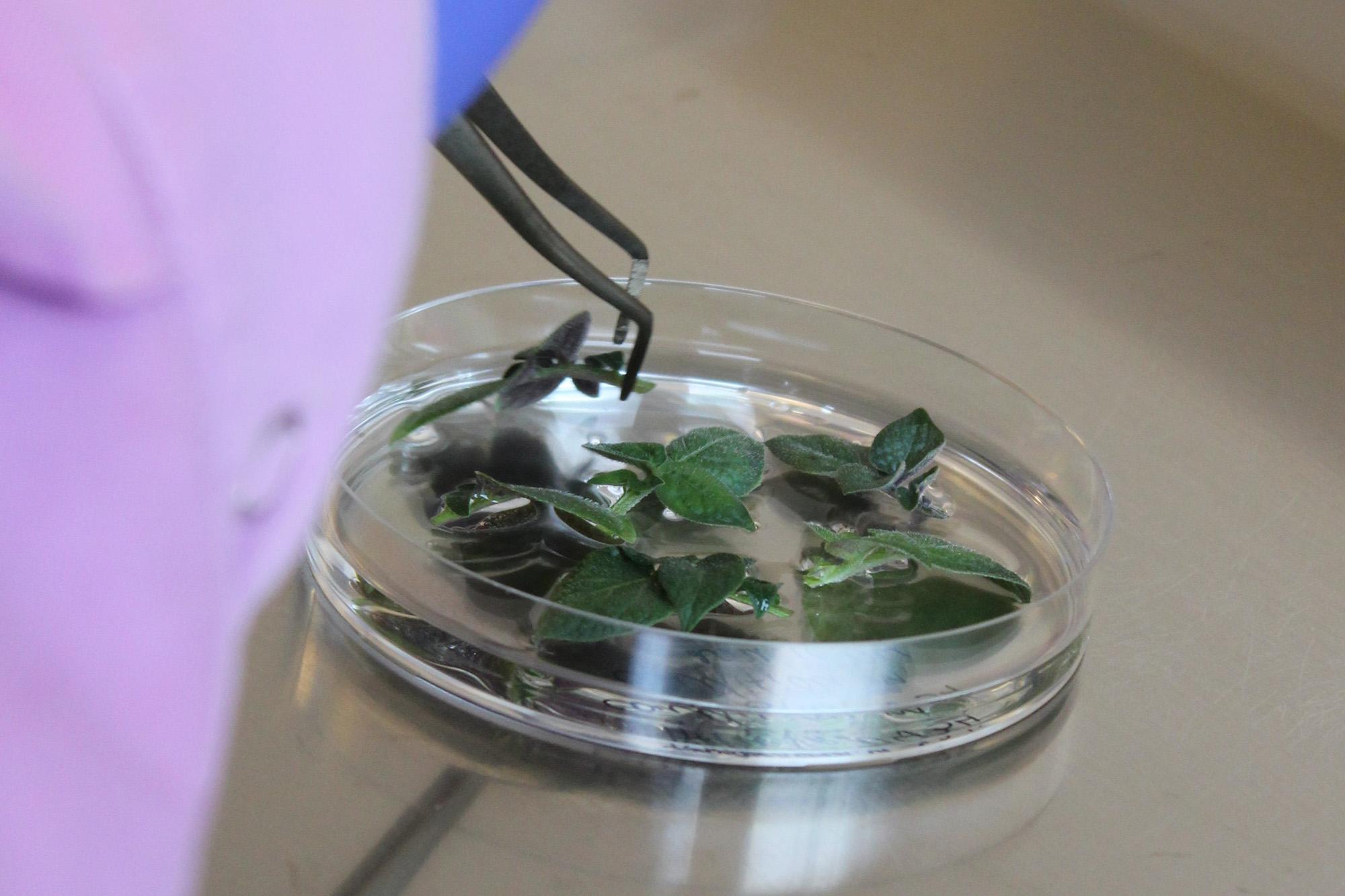Modern Potato Breeding

Potato production in Switzerland and worldwide faces numerous major challenges that impact food security, the agricultural sector, environment and biodiversity. Novel crop breeding methods have the potential to significantly reduce these challenges.
Project description
What is the research project about?
Growing potatoes in Switzerland requires large amounts of pesticides. Furthermore, climate change is leading to more frequent heat waves and droughts, favoring new pathogens. Due to these increasing challenges about 1000 farmers have stopped growing potatoes in the last 10 years. The most sustainable approach for reducing pesticide use and improving crop resilience is breeding improved varieties. However, potato breeding using classical methods is inherently slow and cannot keep pace with the speed of climate change or the emergence of new diseases.
The aim of this project is to create potato lines that require less pesticides and that are more tolerant to drought stress. It aims to breed new potato lines derived from varieties that are important for Swiss agriculture and to test them in field trials in Switzerland, Sweden and The Netherlands.
Why is the research project important?
The project will test the potential of new breeding technologies (NBTs) for crop breeding. If successful, the potato lines produced will have two main purposes: producing real-world use cases tested in three different countries and show the advantages to policy makers, farmers and interested public. Importantly, the lines produced could in theory directly be used by Swiss farmers if legislation permits.
Original title
CRISPS: Editing Sustainable and Innovative Potatoes for Switzerland